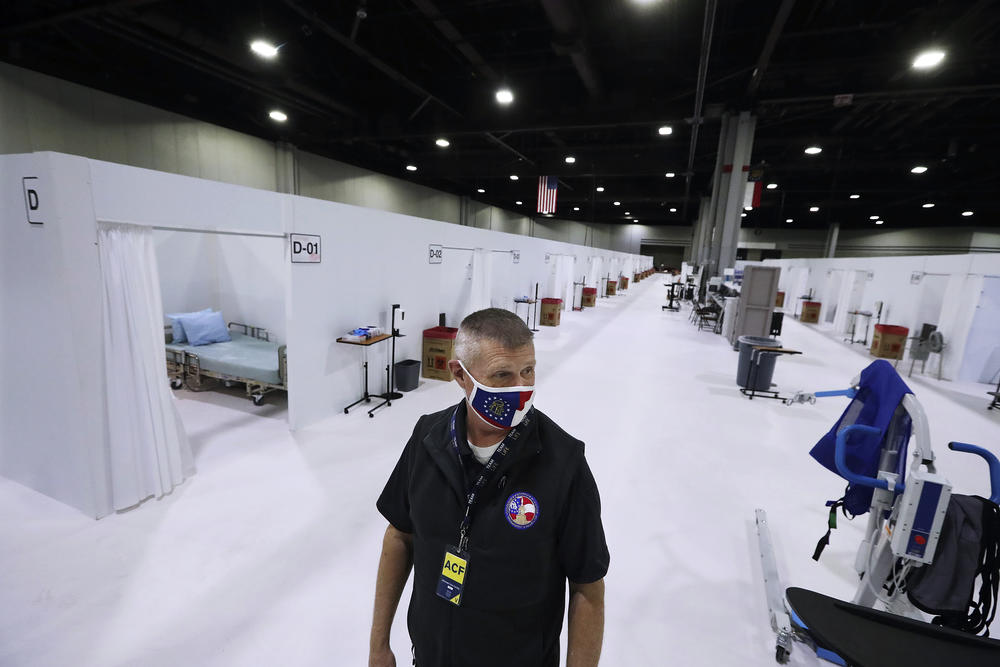
Caption
Mark Sexton, deputy director of the Georgia Emergency Management and Homeland Security Agency, tours the alternative hospital bed capacity facility the state of Georgia is re-activating at the Georgia World Congress Center, Tuesday, Dec. 29, 2020, in Atlanta, amid the coronavirus pandemic.
Credit: Curtis Compton / Atlanta Journal-Constitution via AP, Pool

